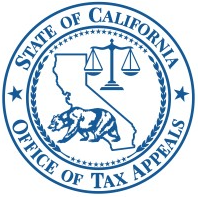Under a new bill signed into law on March 11, 2024, the South Carolina Department of Revenue will have to satisfy additional standards before it may force affiliated corporate taxpayers to file a unitary combined return. These new standards, enacted as part of Senate Bill 298, are expected to rein in the Department’s aggressive use of forced combination, which has led to considerable tax controversy in the state.
Modeled on section 18 of the Uniform Division of Income for Tax Purposes Act, section 12-6-2320 of the South Carolina Code of Laws has long authorized the Department to require, and taxpayers to petition for, a reasonable alternative apportionment methodology when the standard apportionment provisions do not fairly represent the extent of the taxpayer’s in-state business activity. However, until Senate Bill 298, no standards or guidelines—other than those in the statute itself—existed for invoking and applying this alternative apportionment authority. The absence of any standards or guidelines created considerable uncertainty for taxpayers.
Senate Bill 298 shifts the landscape. Now, before it may require the filing of a unitary combined return, the Department must find that the taxpayer’s intercompany transactions lack economic substance or are not at fair market value. To determine whether intercompany transactions are at fair market value, Senate Bill 298 specifies the Department must apply the federal transfer pricing standards contained in the Treasury Regulations. When the Department finds that a combined return is required, it must provide the taxpayer with a written statement detailing the facts, circumstances, and reasons supporting the Department’s finding no later than ninety days after issuing a proposed assessment.
Two other features of Senate Bill 298 are noteworthy. In determining whether intercompany transactions lack economic substance or are not at fair market value, the Department must consider each tax year separately. In addition, when a taxpayer appeals a final determination by the Department under section 12-6-2320 to the South Carolina Administrative Law Court in a contested tax case, Senate Bill 298 requires the administrative law judge to review de novo each of the following:
- Whether intercompany transactions lacking economic substance or not at fair market value cause the taxpayer’s separate returns to unfairly represent the extent of the taxpayer’s in-state business activity;
- Whether the Department’s means of determining the taxpayer’s state net income under section 12-6-2320 is an appropriate means of determining the taxpayer’s state net income properly attributable to South Carolina; and
- To the extent the Department required a combined return, whether adjustments other than requiring the filing of a combined return are adequate under the circumstances to redetermine state net income.
The new law is effective March 11, 2024 and applies to all open tax periods, but not assessments under judicial review by the Administrative Law Court, the South Carolina Court of Appeals, or the South Carolina Supreme Court as of that date.












